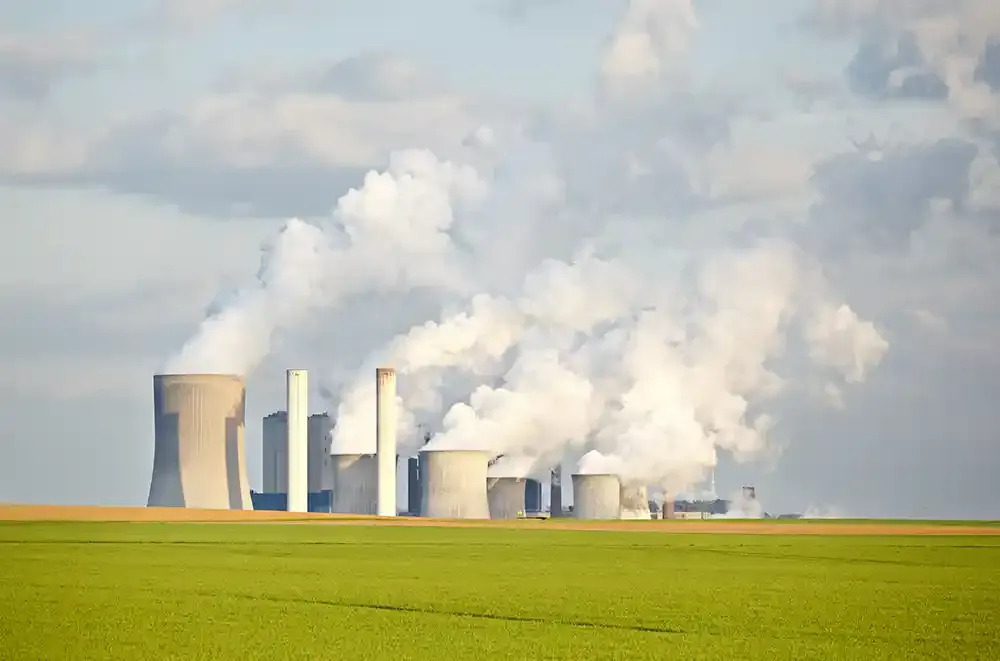Hyundai Motorstudio Senayan Park
Hyundai Motorstudio Senayan Park
Newsroom
The official news from Hyundai Motorstudio Senayan Park and a collection of innovative articles on mobility and sustainability here.
-
What are Carbon Emissions and Their Impact on the Global Climate
- Hyundai Motorstudio Senayan Park Senayan Park 2022.05.05
-
Carbon emission is gasses released from the combustion of compounds containing carbon, such as CO2, diesel fuel, LPJ, and other fuels. In a simple sense, carbon emission is the release of carbon into the atmosphere. Carbon emissions are a contributor to climate change along with greenhouse gas emissions.Carbon emission is one of the causes of climate change in the world. This process can have an impact on the environment, human health, and create economic instability.Many countries in the Asia Pacific region are working to reduce carbon emissions by 41% with international support by 2030.This was revealed at the Conference of the Parties (COP) 26 United Nations Framework Convention on Climate Change (UNFCCC) meeting in Glasgow, United Kingdom.
Definition of carbon emissions
Carbon emission related to the process of moving an object. According to the Cambridge Dictionary, emission is the amount of gas, heat, light, etc. that is emitted. This word is often used to refer to heat emission, light emission, and carbon emission.
So, what is carbon emission? Carbon emissions are gasses released from the combustion of compounds containing carbon, such as CO2, diesel fuel, LPJ, and other fuels. In a simple sense, carbon emission is the release of carbon into the atmosphere.
Carbon emission is a contributor to climate change along with greenhouse gas emissions. Excessive gas emissions can cause global warming or the greenhouse effect. This results in a significant increase in Earth's temperature.Causes of Carbon Emissions
Carbon emissions are caused by the burning activity of compounds containing carbon. To find out the amount of emissions, a carbon footprint measurement is carried out. According to the Encyclopedia Britannica, carbon footprint is the amount of carbon dioxide (CO2) emissions associated with all activities of a person or other entity such as buildings, companies, countries, and others.
The carbon footprint comes from the ecological footprint which is a measure of the impact on the environment expressed as the amount of land required to maintain natural resources. The concept of a carbon footprint also often includes emissions of other greenhouse gasses, such as methane, nitrous oxide, or chlorofluorocarbons (CFCs).
Carbon emissions are also caused by the burning of fossil fuels in manufacturing, heating, and transportation, as well as emissions needed to generate electricity for the goods and services consumed.Carbon Emission Impact
A global study on carbon emissions published in the Journal of Sustainability revealed that the increase in carbon emissions has caused significant concern among countries such as China, the United States, Russia, India, the European Union and Japan as the world's leading emitters of carbon.
Carbon emissions have an impact on global climate change. Several research studies of carbon emissions have attracted the attention of researchers due to the rapidly changing global climate. Researchers have discovered that anthropogenic emissions of one trillion tons of carbon are likely to cause a global temperature increase of two degrees Celsius.How to Reduce Carbon Emissions
The carbon footprint can be reduced through improved energy efficiency and changes in lifestyle and buying habits. The shift in one's use of energy and transportation can have an impact on the primary carbon footprint.
Examples are using public transportation, such as buses and trains, installing energy-efficient lighting, and adding insulation to buildings. In addition, carbon emissions can also be reduced by using renewable energy sources to generate the required electricity.Carbon emissions are also caused by the burning of fossil fuels in manufacturing, heating, and transportation, as well as emissions needed to generate electricity for the goods and services consumed.Carbon Emission Impact
Carbon emissions are a contributor to climate change along with greenhouse gas emissions. Excessive gas emissions can cause global warming or the greenhouse effect. This results in a significant increase in the temperature of the earth
Before going into a deeper discussion, it is necessary to clarify in advance that the carbon referred to here is not carbon produced from charcoal which is usually used as fuel, but carbon from polluting gasses that can cause global warming and climate change.
The current state of the world is quite dire with extreme weather and natural disasters having become commonplace due to global warming. In fact, this is the impact of human activities and we must take responsibility, one of which is by taking action on the release of greenhouse gasses (GHG) into the atmosphere.
These gasses absorb infrared energy from sunlight, the energy of which is otherwise reflected back into space. The atmosphere will become hotter and the earth's surface temperature will be higher.
Based on data released by the United Nations agency that oversees climate change, the Intergovernmental Panel on Climate Change (IPCC), polluting gasses or better known as greenhouse gasses globally come from CO2 (76%), Methane (16%), Nitroxide ( 6%) and Fluorinated Gas (2%). The top five major greenhouse gas emitters include China, the US, India, Russia and Japan.




